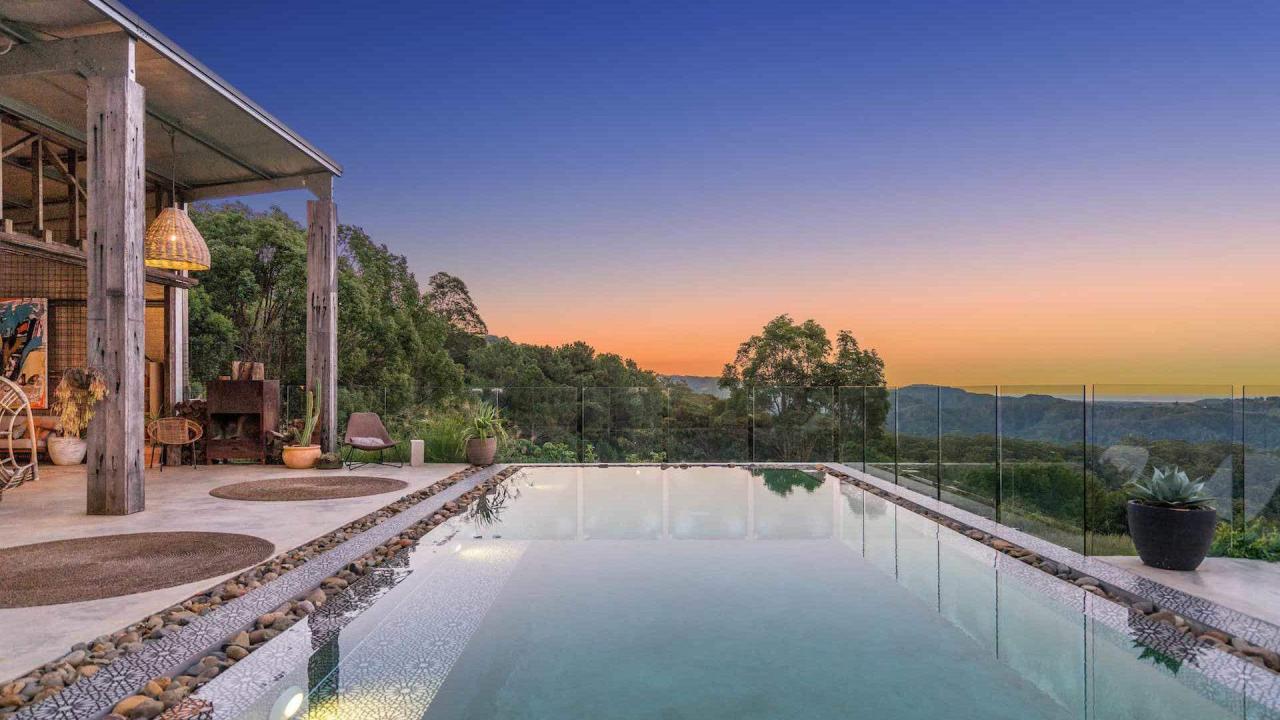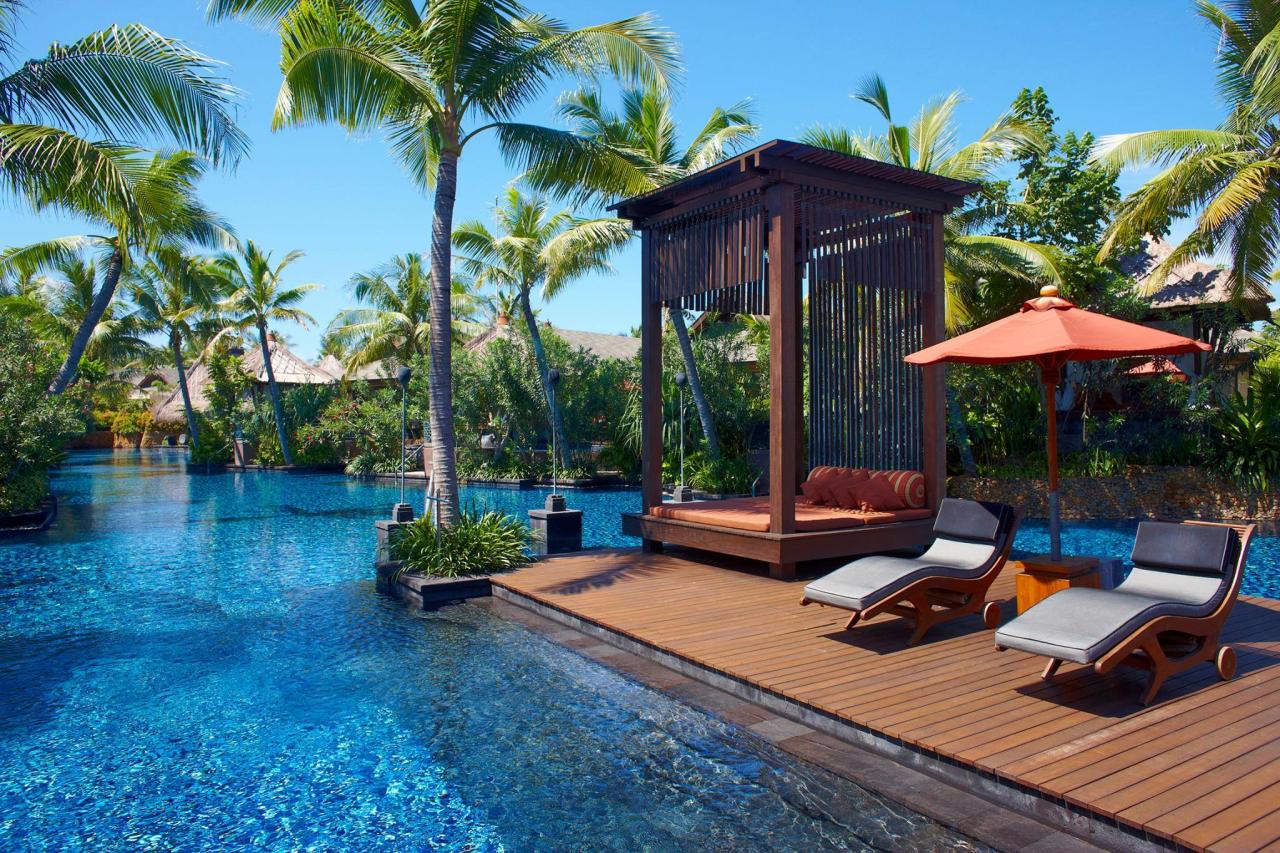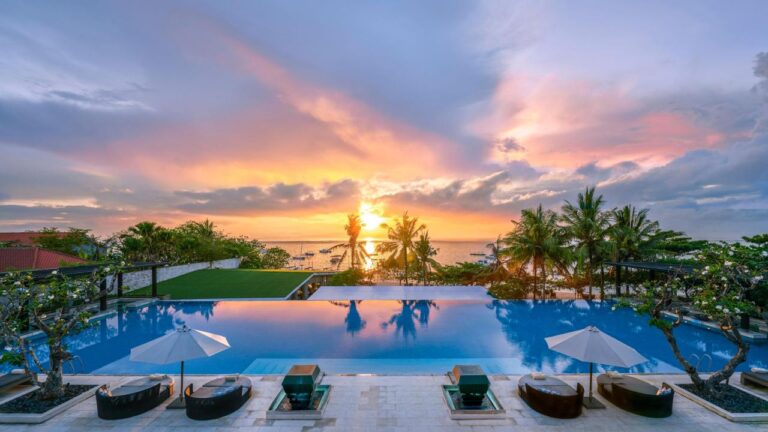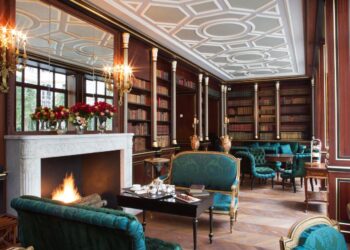In the ever-evolving world of travel, the pursuit of luxury stays has transcended mere accommodation, becoming an immersive journey into unparalleled comfort, personalized service, and exclusive experiences. For the discerning traveler, a luxury hotel is not just a place to sleep; it’s a destination in itself, offering a sanctuary of sophistication and a gateway to unforgettable memories. This comprehensive guide delves deep into the multifaceted realm of luxury hospitality, exploring what defines it, how it has evolved, and why it continues to captivate the imagination of global wanderers.
The Essence of Luxury Hospitality

What truly sets a luxury stay apart from a standard hotel experience? It’s a symphony of elements meticulously orchestrated to deliver an extraordinary guest journey. From the moment of arrival to the heartfelt departure, every detail is curated to anticipate needs, exceed expectations, and create a lasting impression.
A. Impeccable Service
At the core of any luxury experience is service – not just good service, but truly exceptional, intuitive service. This goes beyond a friendly greeting; it’s about anticipating a guest’s desires before they are even articulated. Imagine a concierge who remembers your preferred type of pillow, a waiter who knows your morning coffee order, or a housekeeper who ensures your room is always immaculate at your convenience. This level of personalization is the hallmark of true luxury. Staff members are highly trained, often multilingual, and possess an innate ability to connect with guests on a personal level, making them feel valued and understood.
B. Exquisite Design and Ambiance
Luxury hotels are often architectural marvels and interior design masterpieces. Every space, from the grand lobby to the most intimate suite, is thoughtfully designed to evoke a sense of grandeur, tranquility, or unique cultural immersion. This involves the careful selection of high-quality materials – fine linens, bespoke furniture, original artwork, and sophisticated lighting – all contributing to an atmosphere of refined elegance. The ambiance extends beyond aesthetics, encompassing the subtle use of curated music, signature scents, and impeccable cleanliness, creating a holistic sensory experience that soothes and delights
C. Unrivaled Amenities and Facilities
The breadth and quality of amenities offered by luxury hotels are unparalleled. This can include anything from Michelin-starred restaurants and world-class spas to private beaches, infinity pools, and state-of-the-art fitness centers. Many luxury properties also offer unique facilities such as private cinemas, golf courses, equestrian centers, or even helipads. The focus is on providing guests with every conceivable comfort and entertainment option, often within the confines of the property itself, allowing for a truly self-contained, luxurious retreat.
D. Exclusive Experiences
Luxury stays often provide access to exclusive experiences that are unavailable to the general public. This could range from private art tours and bespoke culinary classes to yacht charters and curated cultural excursions. These experiences are tailor-made to individual preferences, offering a deeper and more authentic engagement with the destination. The emphasis is on creating unique, memorable moments that go far beyond typical tourist activities, adding an invaluable layer to the travel experience.
E. Privacy and Seclusion
For many luxury travelers, privacy is paramount. High-end hotels often offer secluded villas, private residences, or suites with dedicated entrances, ensuring a discreet and undisturbed stay. This focus on privacy extends to the design of the property, with thoughtful landscaping and layout that provide a sense of personal space, even within a bustling resort. It’s about creating an intimate sanctuary where guests can relax and unwind without intrusion.
The Evolution of Luxury
The concept of luxury hospitality has not remained static; it has continuously evolved to meet the changing demands and preferences of the modern traveler. What was once considered luxurious has been redefined by new technologies, sustainability concerns, and a growing desire for authentic, experiential travel.
A. Technology Integration
Modern luxury hotels seamlessly integrate technology to enhance the guest experience. This goes beyond free Wi-Fi; it includes smart room controls for lighting, temperature, and entertainment, intuitive in-room tablets for ordering services, and even personalized digital concierges. The goal is to make the guest’s stay more convenient, efficient, and personalized without feeling intrusive. Technology is a tool to empower, not overwhelm, the guest.
B. Sustainability and Ethical Practices
Today’s luxury traveler is increasingly aware of their environmental and social impact. As a result, many high-end properties are embracing sustainability and ethical practices. This includes everything from energy-efficient operations and waste reduction programs to sourcing local, organic produce and supporting local communities. Hotels are finding innovative ways to offer a luxurious experience that also aligns with responsible tourism, proving that indulgence doesn’t have to come at the cost of the planet or people.
C. Experiential Travel
The shift towards experiential travel has profoundly impacted the luxury sector. Travelers are seeking more than just beautiful rooms; they want authentic engagement with the local culture, opportunities for personal growth, and unique adventures. Luxury hotels are responding by curating bespoke itineraries, offering hands-on workshops, and facilitating meaningful interactions with local artisans, chefs, and guides. The emphasis is on creating narratives and memories rather than simply providing a place to stay.
D. Health and Wellness Focus
The growing global emphasis on health and wellness has found a strong foothold in luxury hospitality. Many properties now offer comprehensive wellness programs, including state-of-the-art gyms, yoga and meditation studios, personalized fitness trainers, nutritional consultations, and advanced spa treatments. Some even have resident doctors or wellness experts. The aim is to provide a holistic environment where guests can rejuvenate their mind, body, and spirit.
E. Personalization at Scale
Leveraging data and advanced analytics, luxury hotels are now able to offer personalization at scale. This means understanding individual preferences, past behaviors, and even future travel plans to proactively tailor services and recommendations. From pre-stocking your mini-bar with your favorite snacks to arranging a surprise birthday celebration, the ability to anticipate and fulfill desires before they are explicitly requested is becoming a hallmark of cutting-edge luxury.
The Economic Impact of Luxury Stays

The luxury hospitality sector plays a significant role in the global economy. It not only generates substantial revenue directly but also creates numerous employment opportunities and stimulates growth in related industries.
A. Job Creation and Skill Development
Luxury hotels are major employers, offering a wide range of jobs from management and marketing to culinary arts, spa therapy, and specialized service roles. The demand for highly skilled and trained professionals in this sector drives investment in education and skill development, contributing to a more capable and competitive workforce.
B. Stimulating Local Economies
Luxury properties often source a significant amount of their goods and services locally, from fresh produce and artisanal products to construction materials and local transportation. This direct investment in the local economy creates a ripple effect, supporting small businesses and fostering economic growth in the surrounding communities.
C. Attracting High-Value Tourists
Luxury travelers tend to have higher disposable incomes and often stay longer, spending more on ancillary services, local attractions, and retail. By attracting these high-value tourists, destinations can increase their tourism revenue and gain a reputation as a premier travel spot, leading to further investment and development.
D. Driving Innovation and Quality Standards
The highly competitive nature of the luxury market drives continuous innovation in service delivery, design, and technology. This constant push for excellence often sets new benchmarks for quality across the entire hospitality industry, benefiting even non-luxury segments as best practices trickle down.
Choosing Your Perfect Luxury Stay
With an abundance of exquisite options, selecting the ideal luxury hotel can be a delightful challenge. Consider these factors to ensure your choice aligns perfectly with your desires:
A. Relaxation, Adventure, or Business?
Are you seeking a tranquil retreat for ultimate relaxation, an adrenaline-fueled adventure, or a sophisticated environment for business travel? Your primary purpose will guide your choice of property and its specific offerings.
B. Research Reputation and Reviews
Online reviews, industry awards, and reputable travel publications offer invaluable insights into a hotel’s reputation and the experiences of past guests. Look for consistent praise regarding service, amenities, and overall guest satisfaction. Pay attention to how the hotel responds to feedback, both positive and negative.
C. Proximity to Desired Attractions
While luxury hotels often offer a self-contained experience, the location remains crucial. Consider its proximity to airports, city centers, natural attractions, or any specific points of interest that are central to your travel plans.
D. Personal Preferences
Do you prefer a grand, historic hotel or a sleek, contemporary boutique property? Are you looking for a lively resort with entertainment or a secluded haven of tranquility? Consider your personal preferences regarding size, style, and atmosphere.
E. Value Proposition
While luxury comes at a price, consider the value proposition. Does the cost reflect the unparalleled service, exclusive amenities, and unique experiences offered? Sometimes, a higher price point can translate to a truly exceptional and memorable stay that offers immense value beyond monetary terms.
The Future of Luxury Stays
The trajectory of luxury hospitality points towards an even greater emphasis on hyper-personalization, immersive technology, and truly transformative experiences. We can anticipate:
- Hyper-Personalized AI Concierges: Even more sophisticated AI systems that learn individual preferences and anticipate needs with uncanny accuracy, providing seamless, almost psychic service.
- Virtual and Augmented Reality Integration: Enhanced pre-arrival experiences through VR hotel tours and AR overlays within the property, offering interactive guides and personalized content.
- Bio-Individualized Wellness Programs: Tailored wellness plans based on guest’s biometric data, genetic profiles, and real-time health monitoring for truly bespoke rejuvenation.
- Space Tourism Hotels: As space travel becomes more accessible, the first luxury hotels in orbit or on celestial bodies will redefine the ultimate luxury escape.
- Regenerative Travel: Luxury properties leading the way in not just sustainable, but regenerative tourism, actively improving the environment and local communities they operate within.
Conclusion
The allure of luxury stays continues to grow, driven by a desire for exceptional comfort, bespoke experiences, and a deeper connection with the world around us. As the industry innovates and adapts, one thing remains constant: the promise of an unforgettable journey where every detail is perfected, and every moment is designed to delight. For those who seek the extraordinary, luxury hotels are not just a choice; they are a calling.










